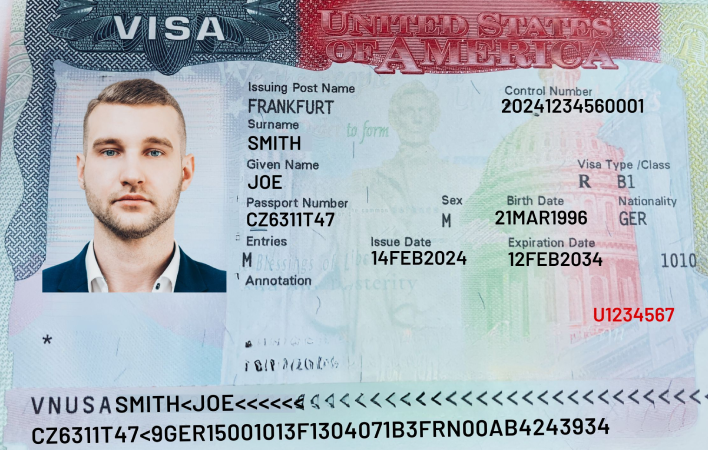




30+
Universities
10K – 20K Euro
Tuition Fees
1.5 Yrs
PSW
12 K Euros
Living Exp
Why Study In Germany?
Germany, with over 2 million job openings, stands out as a powerhouse of career opportunities and a stable economy. As the world's fourth-largest economy, it provides a strong foundation for education and professional growth. German universities are renowned for delivering top-notch education, equipping students with skills to excel in the global job market. Moreover, graduates can start their careers with attractive salary packages, often beginning at INR 40 lakh. Studying in Germany also grants you a Schengen Visa, allowing travel to over 26 European countries, adding an exciting cultural dimension to your experience.
In addition, eligible students can secure permanent residency in as little as two years, along with an 18-month post-study visa to explore career opportunities. With these incredible advantages, studying in Germany becomes a gateway to a bright and successful future. For personalized guidance, abroad education consultants can help you navigate the process and make the most of what Germany has to offer.
Quality Education
Study in globally recognized universities with world class infrastructure and amenities and study with qualified and experienced faculties.
18 Months Post Study Work Visa
For international students Germany offers post study work visa for upto 18 months after completing masters so that the student can explore more and better career opportunities.
Gap Accepted
Most of the universities in Germany are open to accept academic gaps for the betterment of the students.
Global Economic Player
Germany having a great business understanding with India achieves to be a global economic player, leads to offer great opportunity to all the aspirants willing to study in germany.
Book your Free Consultation
Top Universities & Business Schools To Study In Germany For International Students:

Berlin School of Business & Innovation (BSBI)

IUBH

University of Applied Science

New European College (NEC)


Get a personalized expense.
Why to Study in Germany through Pinakin Education?
Pinakin Education has built strong ties with over 30+ top German universities and has successfully placed more than 200 students in Germany, earning its reputation as a trusted name in international education.
Germany is a popular choice for international students, offering a wide array of accredited programs at prestigious universities and business schools. From management to engineering and beyond, the country provides courses across various academic disciplines, catering to diverse interests and career goals.
With over a decade of experience in German education and a team of skilled counselors, Pinakin Education ensures students receive expert guidance at every step. Abroad education consultants at Pinakin Education Services are dedicated to helping students secure admission to their dream universities in Germany, paving the way for a bright academic and professional future.
Pinakin Education being one of the trusted education consultants in Mumbai & Goa offer a dedicated and student centric approach to all the aspirants who plan their abroad education journey with us along with Study Visa assistance.
Meet few of our ‘German Flying Champs’



KNOW FROM THEY: Why Pinakin.Education
Frequently Asked Questions.
What are the requirements for studying in Germany?
To study at top universities in Germany, you need strong academic performance
and English proficiency.
What is the cost of studying in Germany?
Many public universities offer free education but teach primarily in German, requiring proficiency in the language. For private institutions offering English-taught programs, tuition fees start at approximately €10,000. Living expenses range from €600 to €900 per month.
Do I need to learn German to study in Germany?
German proficiency is essential for studying at public universities. However, if you choose an English-taught program at a private university, learning German is not mandatory.
Is IELTS required for Germany?
Most universities mandate IELTS as a key requirement. To study in Germany, you need a higher education entrance qualification, known as Hochschulzugangsberechtigung (HZB). This can be a high-school diploma, school-leaving certificate, or a university entrance exam result.
For undergraduate programs, recognized school-leaving qualifications are sufficient, while postgraduate programs require an undergraduate degree. If your qualification isn’t recognized, you can take a preparatory course at a Studienkolleg, followed by a compulsory test (Feststellungsprüfung). For German-taught programs, proof of German proficiency is necessary. Entry requirements may vary based on the university or program, so always check specific criteria in the prospectus or online.
What IELTS score is required for Germany?
A score of 6.0 or higher is usually required to secure admission to top institutions.
Can I study in Germany without IELTS?
Some private universities accept students based on a Medium of Instruction (MOI) certificate instead of IELTS.
Can I work while studying in Germany?
Yes, students are permitted to work up to 20 hours per week during their studies.
Which courses offer the best job opportunities in Germany?
Germany is renowned for engineering and is home to leading companies that actively recruit skilled engineers. Engineering-related courses provide excellent career prospects.
What are the top universities in Germany?
Germany has several top-ranked universities. Public universities are highly
preferred due to free education, but they require German proficiency. Private universities offer English-taught programs with comparable quality.
Can I study in English in Germany?
Yes, many private universities offer English-taught programs.
What are the job opportunities after studying in Germany?
Germany has abundant job opportunities, especially for students who prepare well during their studies. Engaging with seniors, attending job fairs, and acquiring in-
demand skills improve employability.
What is VFS for Germany?
VFS Global handles visa application processes for Germany. They manage
administrative tasks for visa and passport applications. Student visa applications are
submitted via VFS, and processing typically takes 45-90 working days.
How can I get permanent residency (PR) in Germany?
To apply for PR in Germany, you need sufficient income, adequate living space,
and proof of German proficiency (minimum B1 level). You may also need to complete an integration course and demonstrate knowledge of German law and culture.
What are the requirements for a German study visa?
Detailed information on required documents can be found here.
Why choose Germany for studying abroad?
• Germany is the third most popular destination for international students, offering rich history, culture, and globally recognized education.
• The education system emphasizes practical, international-oriented learning.
• Many universities host lectures from global experts, often in English.
• Students enjoy a vibrant cultural and social environment in Germany's diverse cities.
• German universities offer high academic standards and advanced technology,
enhancing job prospects.
FAQs to Prepare for University Interviews
The process of studying in Germany is straightforward but can take some time. It typically begins with enrolling in a German university. Once you have paid the tuition fees and received an acceptance letter, you can proceed with your VFS submission.
To cover living expenses in Germany, students are required to open a blocked account with funds amounting to 10,232 Euros in approved banks. During university enrollment, students usually undergo a Skype interview. Below are common questions asked during such interviews:
Tell us about yourself.
For academic interviews, your introduction should include:
- Your first name.
- Academic qualifications.
- Any relevant work experience.
- Brief details about your family and personal interests (e.g., hobbies or extracurricular achievements).
Why did you decide to pursue further studies?
Explain how your academic background and work experience (if applicable) align with your choice to continue studying in your selected field.
Why did you choose Germany for further studies?
Reference 1:
Germany is one of the most popular destinations for international students, hosting over 12% of the world’s global student population. Its education system emphasizes global perspectives, making it a hub for students from diverse cultures. Renowned for its rich history, advanced technology, and high academic standards, Germany offers excellent graduate and postgraduate programs. Internationally recognized degrees, world-class faculty, and opportunities for personal and professional growth make Germany an ideal choice.
Reference 2:
Reasons to choose Germany:
- Internationally recognized degree programs.
- Affordable living costs and accommodation.
- The ability to explore Europe with a student visa.
- Mandatory health insurance for all students.
- Opportunities for dual studies.
- A culturally rich and diverse environment.
- A safe and welcoming country.
Why study abroad and not in India?
- International education emphasizes practical knowledge over theoretical.
- Opportunities to earn dual degrees.
- Exposure to global perspectives and advanced learning environments.
- Better international job prospects.
- Opportunities to meet people from different cultures and develop a global mindset.
- Independence and self-reliance.
Why did you choose this university?
Highlight the unique features of the university that align with your goals. Mention:
- Rankings and accreditations.
- Specialized courses and unique modules.
- Distinguished faculty members.
- Alumni success stories.
- State-of-the-art facilities or infrastructure.
How much are the living expenses in Germany?
The estimated monthly living expenses range between 600–900 Euros, covering accommodation, food, and transportation.
Can I do internships while studying?
Yes, international students in Germany can work while studying if they hold a valid residency permit.
- Students can work up to 20 hours per week during the semester.
- Full-time work is allowed for 3 months during holidays.
- Master's students can work for 4-5 months, and bachelor's students for 2-3
months.
What are your future goals?
Entrepreneurship:
After completing my degree at [University Name], I plan to return to my hometown and establish my own organization. My goal is to apply the knowledge and skills I acquire during my studies to grow and innovate within my chosen field.
Working for MNCs:
I aspire to work for leading multinational companies such as ONGC, Tata, or BHEL. My education will equip me to secure a managerial position or other advanced roles in my area of expertise.
Family Business Expansion:
I aim to modernize and expand my family business by implementing innovative ideas and conducting market research. My goal is to elevate our business to a national and eventually international level.
Research and Academics:
I am passionate about contributing to research and academia. My long-term goal is to become a faculty member at a reputable university, where I can advance knowledge in my field and mentor the next generation.


What are you waiting for ?
Request A Free Study
Abroad Counselling
Discover your path to studying abroad with our free counselling sessions! Whether you're exploring international universities, searching for scholarships, or deciding on the right program, our experts are here to guide you at every step.










